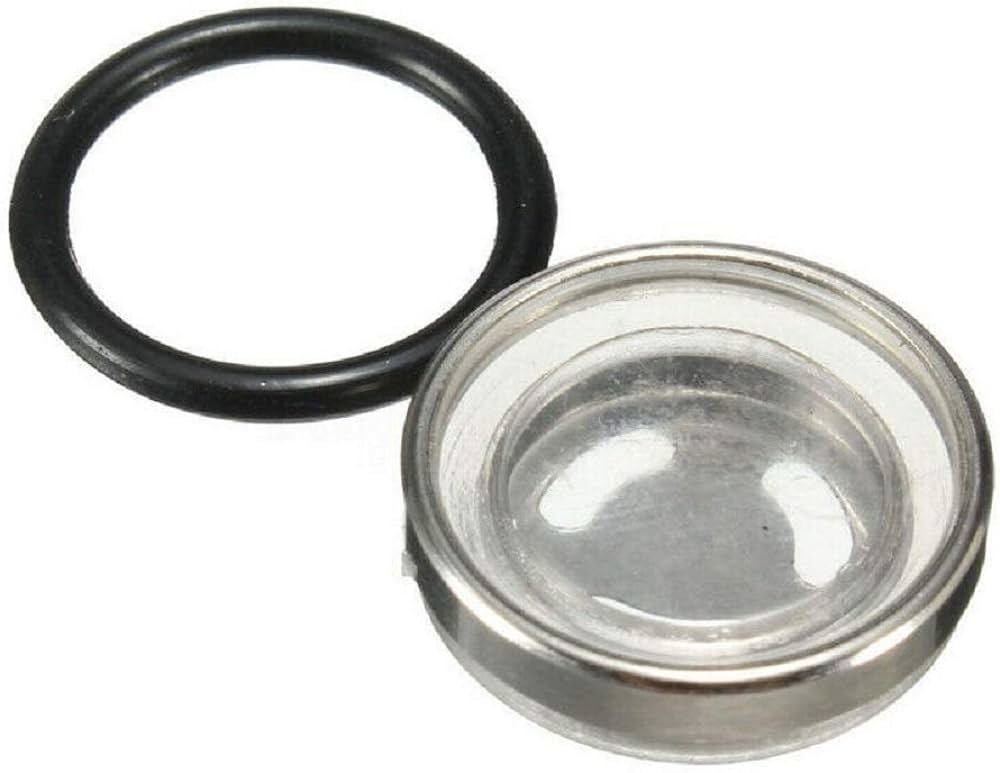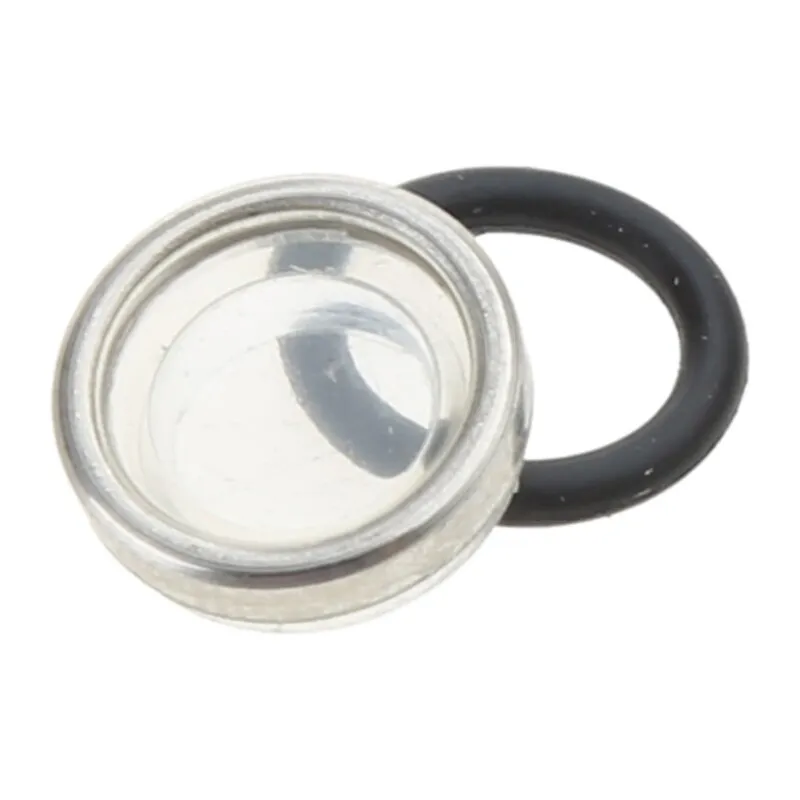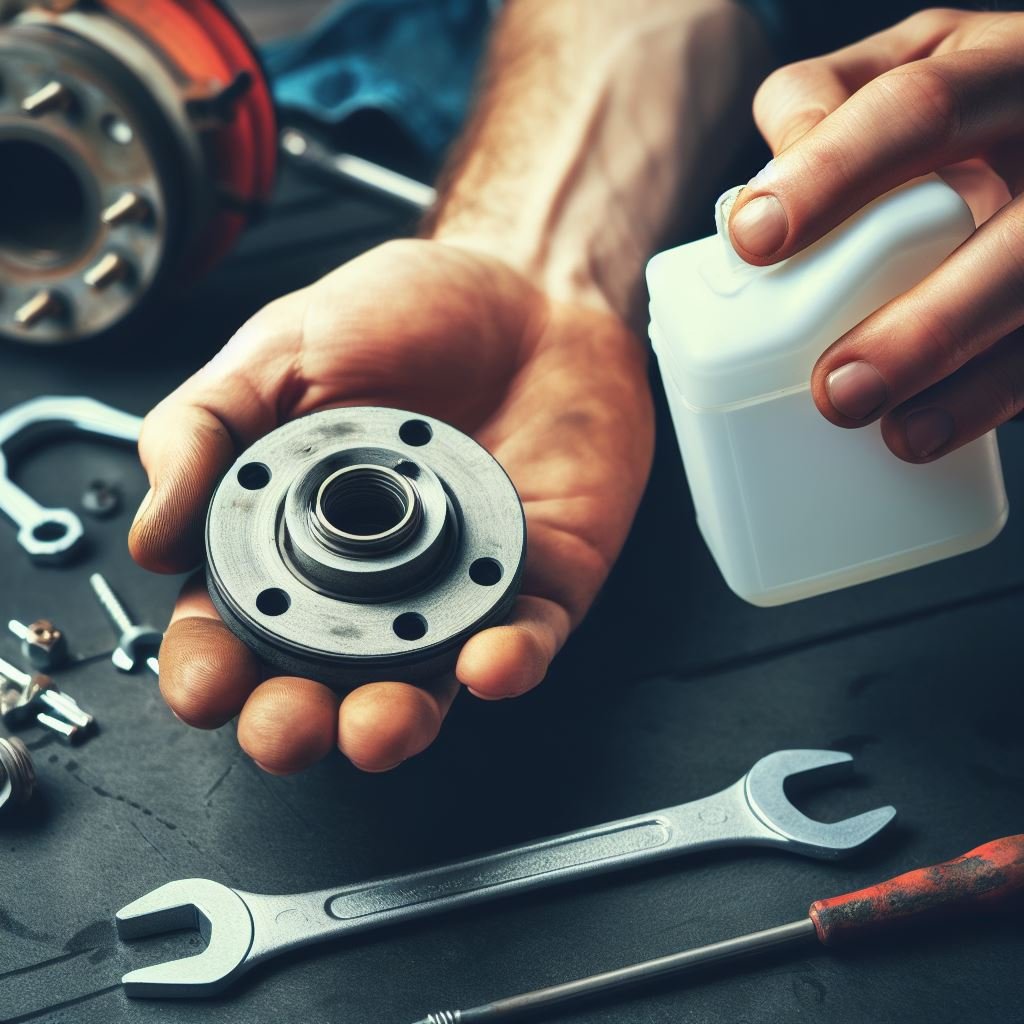Key Takeaway
- The brake fluid gasket is a small but essential part of your vehicle’s braking system.
- It is made of rubber or silicone and creates a seal between the brake fluid reservoir and master cylinder.
- The gasket prevents leakage of brake fluid and maintains pressure for effective braking.
- Regularly checking and replacing the gasket can prevent brake failure and ensure safe driving.
- Using the correct gasket for your vehicle is crucial, as using the wrong one can lead to leaks and compromise safety.
- Replacing the brake fluid gasket is a simple and affordable maintenance task.
- Always refer to your vehicle’s manual or consult a professional when replacing brake fluid gaskets.
Imagine a world where you’re driving on a long stretch of road, enjoying the beautiful scenery, but suddenly your car starts to make strange noises. You pull over to check it out and realize that your brake fluid is leaking due to a faulty gasket. This can be a nightmare for any driver, especially if you’re on a road trip or in a remote area.
But fear not, as we’ve got you covered with all the information you need to know about brake fluid gaskets. In this blog, we will delve into the importance of brake fluid gaskets, how they work, and what to do if you encounter any issues. So, buckle up and get ready to learn more about this essential car component that often goes unnoticed.
What is a Brake Fluid Gasket?

A brake fluid gasket is a crucial component within a vehicle’s braking system, serving as a sealing mechanism to prevent leaks and maintain the integrity of the brake fluid circuit. Typically made of rubber or other resilient materials, the gasket is strategically placed in areas where brake fluid connections, such as brake calipers or master cylinders, are present.
Its primary function is to create a secure and airtight seal, ensuring that brake fluid remains contained within the system. This is essential for the proper functioning of the brakes, as any leakage could compromise brake performance, leading to reduced stopping power and potentially unsafe driving conditions. Regular inspection and replacement of brake fluid gaskets are important aspects of routine vehicle maintenance to prevent fluid loss, maintain brake system efficiency, and ultimately contribute to overall road safety.
Why is it Important?
Get Ready to Stop Safely: The Importance of a Brake Fluid Gasket Do you know what keeps your car’s brakes working smoothly and safely? It’s not just the brake pads or rotors, but also a small yet crucial component known as the brake fluid gasket. This unassuming part may seem insignificant, but it plays a vital role in ensuring your brakes function properly.
So buckle up and get ready to learn more about this often overlooked yet crucial component of your car’s braking system.
You May Also Like: Brake Fluid And Water Absorption: What You Need To Know
How to Know When to Replace a Brake Fluid Gasket
Knowing when to replace a brake fluid gasket is essential for maintaining the integrity and effectiveness of your vehicle’s braking system. There are several signs that indicate it’s time to consider a replacement. Firstly, if you notice brake fluid leaks around the brake calipers, master cylinder, or brake lines, it’s a clear indication that the gasket may be compromised. Leaks can manifest as wet or oily spots near these components. Additionally, a soft or spongy feel when applying the brakes can suggest air entering the system due to a failing gasket.
Unusual sounds, such as squeaking or grinding, may also signal a deteriorating gasket, leading to reduced braking performance. Regularly checking the brake fluid levels and inspecting for any visible leaks can help catch potential issues early. If you observe any of these signs or experience a change in braking behavior, it’s advisable to consult with a professional mechanic and consider replacing the brake fluid gasket promptly to ensure optimal brake system function and overall road safety.
How Does a Brake Fluid Gasket Work?

Your brake fluid gasket works by creating a tight seal between the brake fluid reservoir and the master cylinder. When you press on the brake pedal, the pressure created by your foot causes the brake fluid to flow through the brake lines and engage the brake pads. The gasket ensures that the brake fluid stays contained and pressurized, allowing your brakes to work effectively. It also prevents any air or debris from entering the brake system, which could cause damage or failure.
Brake Fluid Gasket
| Information | Details |
|---|---|
| Purpose | Prevents leakage of brake fluid from the brake system. |
| Material | Made of durable rubber for longevity and resilience. |
| Design | Designed to fit snugly into the brake fluid reservoir. |
| Maintenance | Regular checks and replacement enhance brake effectiveness. |
| Consequences of Damage | A damaged or worn gasket can lead to brake failure and unsafe situations. |
| Replacement | A simple and affordable maintenance task. |
| Importance of Correct Gasket | Essential to use the right gasket for your specific vehicle make and model. |
| Risks of Using Wrong Gasket | Using the wrong gasket can cause leaks, compromising brake safety. |
| Guidance for Replacement | Always refer to your vehicle’s manual or consult a professional mechanic. |
Important Notice for readers
Attention all readers! Before you dive into this article about brake fluid gaskets, we want to bring to your notice that this information is crucial for your safety and the proper functioning of your vehicle. It is essential to regularly check and replace your brake fluid gasket to ensure the effectiveness of your brakes. Neglecting this small but significant component can lead to brake failure and put you and your passengers at risk.
Our article covers all the necessary details you need to know about brake fluid gaskets, including signs of wear and tear, replacement process, and tips for maintenance. So, don’t wait any longer and give this article a read to keep yourself and your vehicle safe on the road.
Frequently Asked Questions (FAQs)
What is a brake fluid gasket and what is its purpose?
A brake fluid gasket is a small rubber or metal seal that is used to prevent brake fluid from leaking out of the brake system. It helps to maintain proper pressure and ensure safe and efficient braking.
How do I know if my brake fluid gasket needs to be replaced?
Signs that your brake fluid gasket may need to be replaced include visible leaks or drops of brake fluid on the ground, a spongy brake pedal, or a decrease in brake fluid levels. It is important to have your brakes checked by a professional if you notice any of these signs.
Can I replace my brake fluid gasket myself?
While it is possible to replace a brake fluid gasket on your own, it is recommended to have a trained mechanic do it for you. This ensures that it is done correctly and ensures the safety of your brake system.
How often should I replace my brake fluid gasket?
The lifespan of a brake fluid gasket can vary depending on the type of vehicle and driving conditions. It is generally recommended to have it inspected and replaced every 3-4 years or as needed.
Are there different types of brake fluid gaskets?
Yes, there are different types of brake fluid gaskets available for different types of brake systems. It is important to use the correct type for your specific vehicle to ensure proper fit and function.
Can a faulty brake fluid gasket cause brake failure?
While a faulty brake fluid gasket can lead to brake fluid leaks and potential loss of braking power, it is not the only factor that can cause brake failure. Regular maintenance and inspections of your brake system are important for ensuring safe and reliable braking.
Conclusion
It is evident that this small but essential component plays a crucial role in the proper functioning and safety of a vehicle’s brake system. Its main function is to create a seal between the brake fluid reservoir and the master cylinder, ensuring that no air or moisture enters the system. The quality and condition of the gasket directly impact the brake system’s performance and should be regularly checked and replaced if necessary.

Leave a Reply